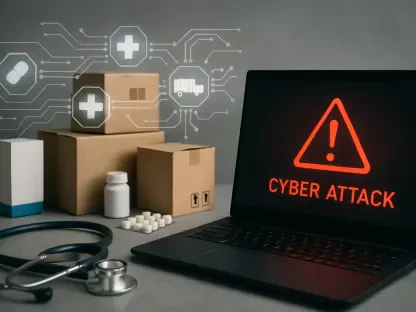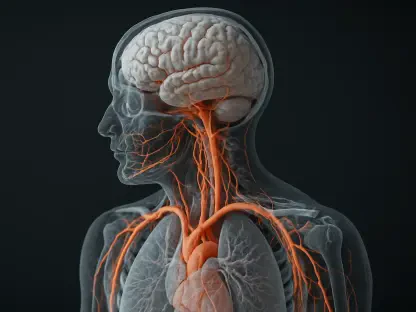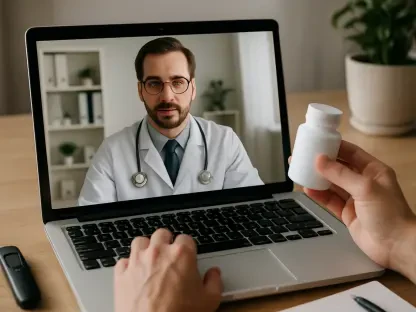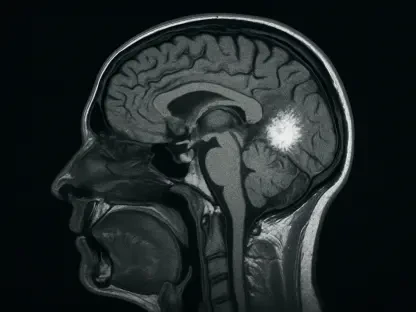In the rapidly evolving field of digital health, the integration of technology and healthcare solutions is becoming ever more critical. James Maitland, a leading expert in robotics and IoT applications in medicine, shares insights into the strategic acquisition of digital health company Xealth by Samsung. This deal aims to unify fragmented health information and enhance clinical care through wearables like the Galaxy Watch. James discusses the motivations behind the acquisition, the integrations with electronic health records, and the broader implications for the healthcare industry.
Can you provide an overview of the agreement between Samsung and Xealth?
Samsung recently announced its agreement to acquire Xealth, a digital health company known for managing digital tools in healthcare. This move aims to unify health data across wearables like the Galaxy Watch and integrate this data into clinical care, ensuring smoother management and better decision-making in healthcare environments.
What factors motivated Samsung to acquire Xealth?
The primary motivation for Samsung appears to be their goal of creating a unified health data ecosystem. By acquiring Xealth, they can integrate consumer wellness data with clinical information, providing healthcare providers with a more comprehensive view of a patient’s health, which has always been a fragmented space.
How does Xealth’s platform integrate with electronic health records?
Xealth’s platform allows healthcare providers to seamlessly access and manage various digital health products through electronic health records. This integration not only centralizes remote patient monitoring programs but also streamlines the data flow from numerous digital health devices directly into the patient’s medical record.
In what ways will data from Samsung’s Galaxy Watch line enhance clinical care through this acquisition?
Data from Samsung’s Galaxy Watch, including heart rhythm and sleep apnea indicators, will offer clinicians additional context that is not available through clinical records alone. This expansive data set will improve day-to-day monitoring and provide critical insights that can lead to proactive healthcare interventions.
What potential synergies does Samsung anticipate by integrating Xealth’s platform into its existing health technology?
Samsung sees potential synergies in enhancing patient engagement and provider workflows by creating a seamless bridge between home monitoring and clinical care. These synergies are expected to improve operational efficiencies and patient outcomes by making comprehensive health data readily available for clinical decision-making.
Could you elaborate on how Xealth centralizes remote patient monitoring programs?
Xealth’s platform is adept at organizing remote patient monitoring programs by linking diverse digital health products directly to electronic health records. This capability allows clinicians to monitor patients in real-time and provide better care through known digital interfaces, which are both efficient and user-friendly.
Which other digital health products does Xealth’s platform support?
Xealth’s platform supports a wide array of digital health products beyond Samsung’s Galaxy Watch, collaborating with over 70 digital health firms. This includes various consumer wellness products that, when integrated, provide a fuller picture of patient health alongside traditional clinical measures.
How many hospitals and digital health firms currently work with Xealth, and how might that influence Samsung’s network?
Xealth works with more than 500 U.S. hospitals and over 70 digital firms, which presents Samsung with a vast network upon which to build further collaborations. This extensive reach allows Samsung not only to expand its own platform but also to lead influential partnerships and innovations in digital health technology.
Can you explain how consumer wellness product data will be better shared with providers due to this acquisition?
Through the acquisition, Samsung aims to streamline the data from its wearables into workflows of healthcare providers, ensuring that consumer wellness data is not just collected but actively used in patient care. This will help fill gaps in health records, making the data actionable and relevant for clinicians.
What specific challenges does Samsung aim to address by unifying fragmented health information?
Samsung aims to address the issues of data fragmentation in healthcare, where information is scattered across multiple platforms and devices. By unifying these data points, Samsung hopes to offer a cohesive view of patient health that enhances the accuracy and efficiency of clinical decisions.
What role does patient engagement play in the partnership between Samsung and Xealth?
Patient engagement is central to this partnership, as both companies focus on creating tools and platforms that facilitate continuous interaction between patients and their healthcare providers. Enhanced engagement allows for more effective monitoring and management of health conditions, driving better outcomes.
How does Samsung envision the bridge between home health monitoring and clinical decision-making to function?
Samsung envisions this bridge functioning as a seamless integration where data from home monitoring devices flows into electronic health records, aiding clinicians in making informed decisions. This setup will eventually transform healthcare delivery into a more interactive and informed experience for both patients and providers.
Could you explain the FDA clearances that Samsung’s Galaxy Watch has received and their significance in healthcare?
The Galaxy Watch has obtained FDA clearance to monitor irregular heart rhythms and signs of sleep apnea, demonstrating its credibility and reliability as a medical device. These clearances ensure that the data derived from the watches can be trusted and utilized in clinical settings for diagnostics and treatment planning.
How is Samsung planning to develop a data hub to facilitate the sharing of health information with doctors?
Samsung is working on a data hub that will gather and organize health data from its devices and platforms, making it easily accessible and shareable with healthcare providers. This hub will be crucial in empowering clinicians with timely information, enabling them to make better clinical decisions for their patients.
Why are mergers and acquisitions becoming more common as exit routes for digital health companies?
Mergers and acquisitions provide immediate access to broader networks and technologies, which can be more advantageous than going public. By acquiring established firms, companies can quickly enhance their offerings while minimizing the time and risks associated with market entry.
How do mergers and acquisitions compare to initial public offerings as exit strategies in the digital health sector?
Mergers and acquisitions offer more controlled growth and immediate expansion compared to initial public offerings, which can be unpredictable and subject to market conditions. This year has seen more M&A activity because it strategically benefits companies looking to leverage established networks and technologies.
According to the Rock Health report, what are some trends in digital health mergers and acquisitions this year?
This year, the Rock Health report notes a significant increase in mergers and acquisitions, with over 107 digital health deals in the first half alone, on track to surpass last year’s numbers. There’s a visible trend toward consolidation in the sector as firms seek to strengthen their competitive position rapidly.
Can you share any financial details regarding the acquisition of Xealth by Samsung?
Unfortunately, the acquisition’s financial terms have not been disclosed publicly, which is not uncommon in transactions of this nature. Without those specifics, the focus remains on the strategic implications and expected benefits post-acquisition.
What is the expected timeline for the closing of the acquisition?
The acquisition is expected to close within this year, although exact timelines may depend on regulatory approvals and other logistical aspects that are typically involved in closing such deals.
What future developments or partnerships could arise from this acquisition for Samsung?
This acquisition could open doors to future collaborations with hospitals, digital health firms, and industry leaders, creating pathways for advanced health technologies and patient-focused innovations. Samsung is likely to leverage Xealth’s extensive network to push its agenda of digital transformation in healthcare.









